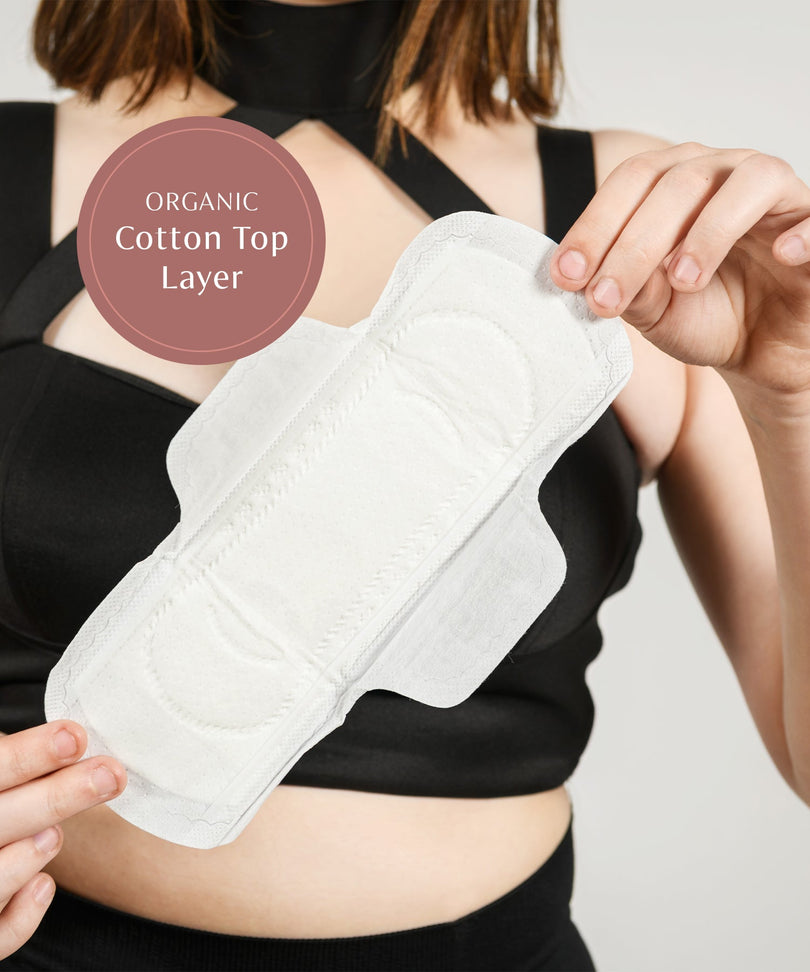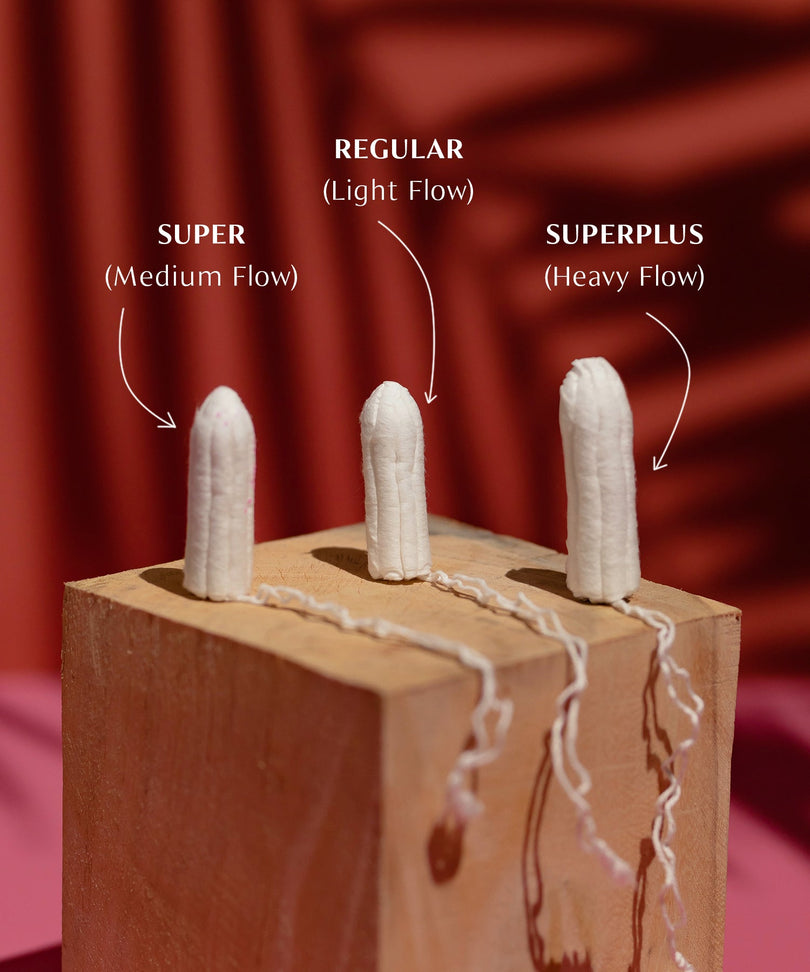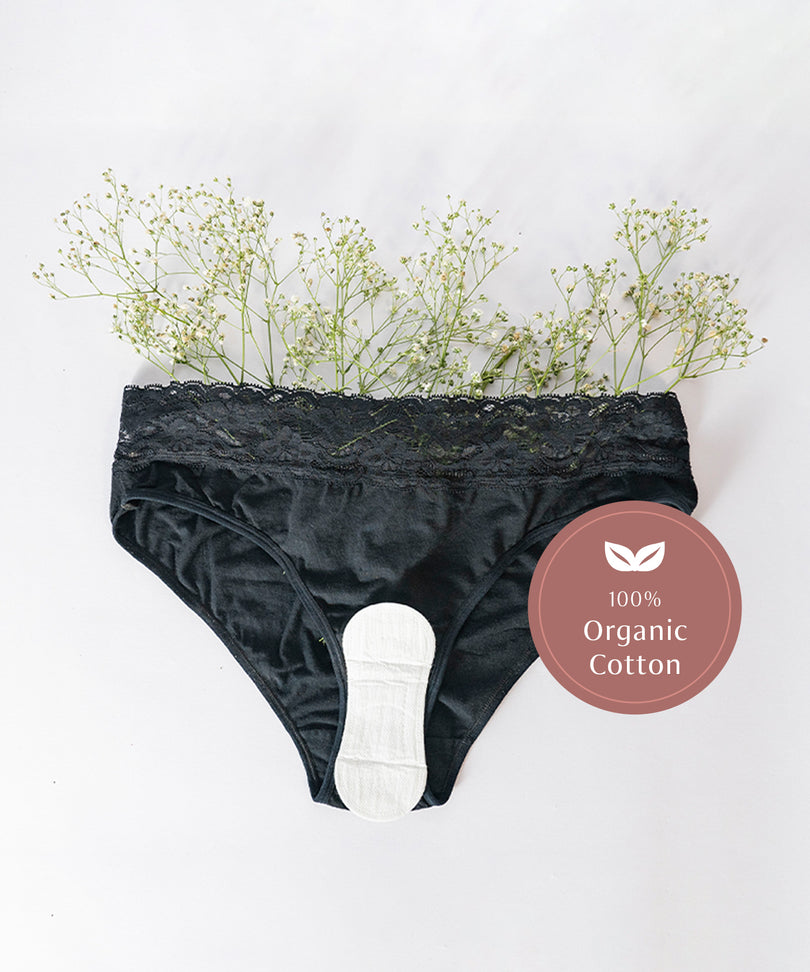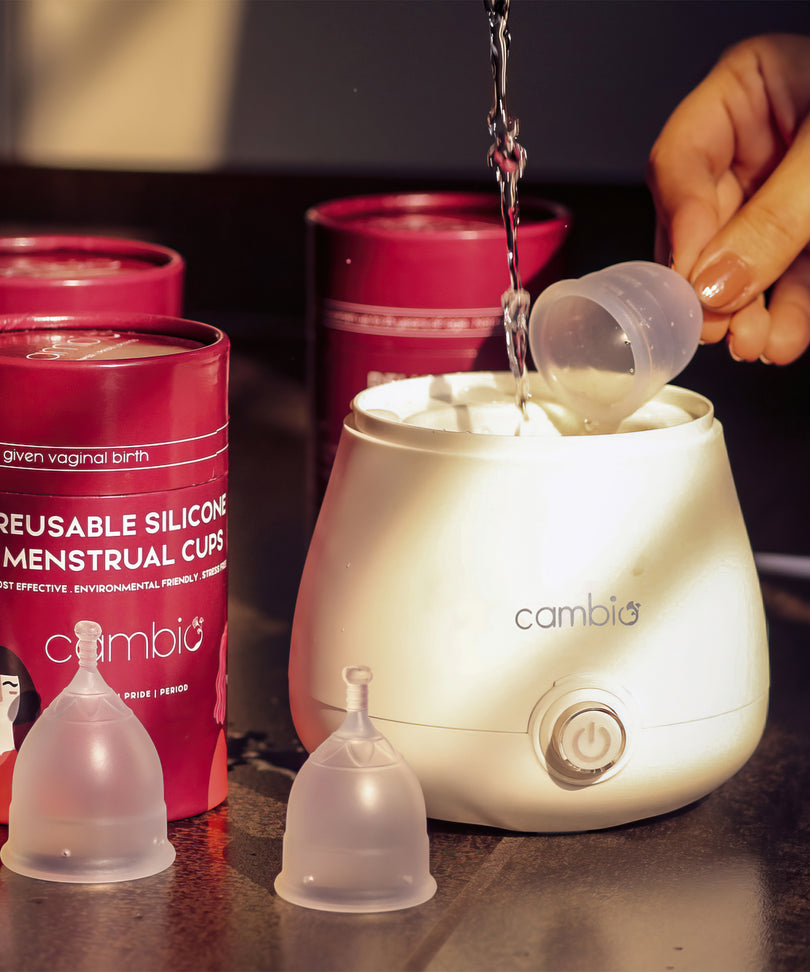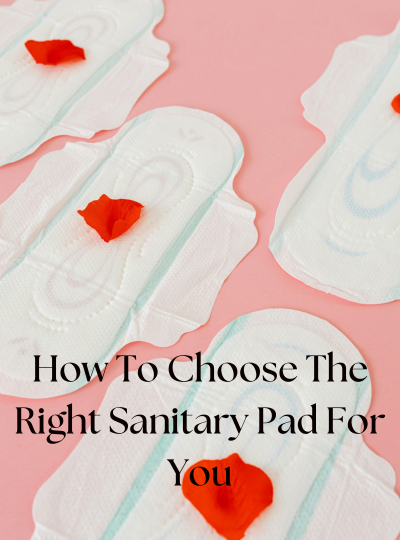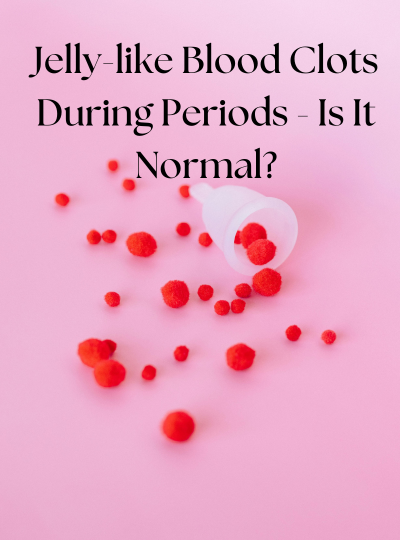What are organic pads?
Organic pads are sanitary pads that are made using only biodegradable and organic materials including organic, unbleached cotton, bamboo pulp, and plant starches. The core of the pad is made with an absorbent layer of cellulose, while the top sheet is made of a soft, breathable fabric which in most cases is cotton.
Menstruators can opt for organic pads for various reasons; for environmental conservation or for individual health benefits. Organic pads provide the comfort and familiarity of using regular pads without the drawbacks and risks.
What to avoid in pads?
When choosing which pads to use, it’s important to consider the ingredients and processes through which the pads are manufactured. Some of the ingredients present in conventional pads can pose harmful risks to your reproductive health and your overall wellbeing in general.
The vaginal and vulvar tissues are highly absorptive and permeable, allowing substances present in sanitary products to enter the body skipping the initial metabolic process.
In India, sanitary pads are classified as medical products, hence companies are not obligated to disclose all the ingredients used in the pads in the packaging.
The following chemicals which are present in many conventional pads pose some harm to the body and should be avoided for better long-term health outcomes:
Dioxins
Dioxins along with furans are compounds which are formed as byproducts of the chlorine bleaching process through which most conventional period products like pads, panty liners and tampons are whitened. They remain in the material fibres after bleaching and are not disclosed in the products’ ingredients.
Dioxins are carcinogenic and have been linked to hormone disorders, reproductive harm and compromised immunity.
While first-hand dioxin exposure is regarded as a significant problem, a lesser known but looming issue is that of increasing dioxin levels in the atmosphere as these period products and other bleached products are disposed to accumulate in landfills, contributing to rising dioxin levels around the globe.
Phthalates
Phthalates are a group of chemicals which are used in consumer products today for various reasons. These include softening and strengthening plastic, and retaining scents used in fragrances.
Phthalates are particularly harmful for pregnant women and babies as they can pose risk to the development of the fetus, especially for brain and reproductive development.
Volatile Organic Compounds
Volatile Organic Compounds (VOCs) are a group of chemicals which can evaporate into air. These are mostly present in adhesives used for pads and panty liners and may also be present in fragrances.
VOCs are carcinogenic and prolonged exposure to VOCs can cause irritation, damage to internal organs and reproductive issues.
Fragrances
Scented pads can irritate the skin and alter your natural pH balance, disrupting your vaginal flora and increasing your susceptibility to infections.
Benefits of organic sanitary pads
Hypoallergenic - Organic pads are least likely to contain potential allergens. If you’re comfortable with using pads over other period products but are allergic to some of the contents, switching to organic pads would be a convenient option.
Comfort - The organic cotton top layer is soft and breathable, allowing for more comfort compared to conventional pads, which may be more rigid and stiff. Organic pads are also less likely to bulge up due to the material used.
Chemical-free - Organic pads are devoid of any harmful chemicals present in conventional pads. This lowers the risks of infections and irritation and is better for your long-term health as well, as constant vaginal exposure to harmful chemicals can put you at risk for developing reproductive issues.
- No carcinogens - Carcinogens like dioxins, furans and VOCs found in conventional pads are linked to genital cancers. Organic pads are devoid of all of these and eliminate the risk of developing cancer from pad use.
- Helps maintain balanced pH levels - The fragrances and phthalates present in conventional pads can interfere with your vaginal flora and disrupt the balance of bacteria, increasing chances of infections
Environmentally-friendly - Organic pads are completely biodegradable and don’t release harmful toxins into the air when they decompose.
- Lower carbon footprint - The manufacturing process for organic pads made of natural fibres like cotton and bamboo has a lower carbon footprint than that of conventional pads, in which the plastics used and the bleaching process increase the carbon emissions in their manufacturing process.
- Compostable - Used organic pads are suitable for composting as they are made of plant-based materials. They may take between 12-18 months to fully decompose in a compost bin.
- Promotes organic farming - The materials from organic pads are sourced from farms which use fully organic methods of farming. This type of farming helps to preserve and repopulate wildlife including certain plants and insects which are integral to the balance of their ecosystems.
Rash-free - Both the material of the organic pad and the absence of harmful chemicals minimizes the chances of developing rashes when using organic pads. Opt for pads that have been dermatologically tested to be gentle on the skin.
Low Risk of Infections - Since organic pads are more breathable and allow for some airflow to your genitalia, there is a lower chance of catching fungal and bacterial infections. There is also a decreased chance of developing Toxic Shock Syndrome as compared to using regular pads/tampons. You should still make it a point to change your pads every 3-4 hours.
Also read - Can sanitary pads cause rashes?
Organic cotton pads vs cotton pads (bleached cotton pads)
|
Organic pads |
Conventional pads |
|
|
Material |
Made of organic cotton / bamboo pulp |
Made of a blend of cotton and plastics |
|
Chemicals |
Free of chemicals |
Contains dioxins, furans, VOCs, phthalates |
|
Sustainability |
Biodegradable and decompose in 2 years |
Takes up to 800 years to decompose and releases harmful toxins into the air during the process |
|
Comfort |
Are softer and more breathable |
Can be stiff and bulky |
|
Cost |
More costlier, you can save by opting for a subscription |
Cheaper |
|
Availability |
Mostly available through online purchase |
Readily available at medical stores |
|
Health |
Reduces risk of irritation and infections |
Can lead to rashes and irritation in the short run and reproductive issues caused by dioxins and other carcinogens in the long run |
Also read - Do sanitary pads expire?
Can organic pads be used in heavy flow?
Yes, organic pads can be used in heavy flow. Organic pads are available in different sizes and absorbencies. If the pad is marked as ‘for heavy flow’ or ‘super absorbent’, it may suit your needs best for heavy flow or overnight usage.
Some organic pads are available with multiple absorbent layers to soak the blood and allow you to feel fresh and dry even on heavy-flow days.
Are organic sanitary pads safe?
Yes, organic pads are safe not only for you but for the environment as well. By using organic pads, not only are you protecting yourself from harmful carcinogens found in conventional pads, you are also protecting non-menstruators from the impact of dioxins being released into the air once conventional pads are disposed of.
If you’re allergic to cotton, you can opt for organic pads made of bamboo pulp or use a different period product altogether, such as a menstrual cup.
As organic pad users increase, we hope to see a decrease in cases of reproductive issues and gynecological problems caused by exposure to dioxins and VOCs. We also encourage menstruators not to be complacent with pad rashes! Getting a pad rash every cycle is not ideal and should not be normalized when there are alternatives available.
Organic cotton pads promoting sustainability
Organic cotton pad manufacturers are more in touch with the farming process used to grow the cotton organically. This process is devoid of any artificial pesticides. Growing cotton organically also preserves the biodiversity in the area and is beneficial for wildlife to replenish.
Since organic cotton decomposes within 2 years after disposal, using organic pads can help offset and reduce plastic waste that crowds landfills.
Also read - How to dispose of sanitary pads?
Are organic cotton pads better for you?
Everyone has a right to choose which period product works for them best. If you’re comfortable using pads and are looking for a version that is more sustainable and doesn’t pose risks to your health, we highly recommend switching over to organic pads.
Give them a try for one cycle and observe if you feel any changes regarding rashes and irritations. You can opt for a subscription to cut down on your expenses and put the worry of getting new period supplies on us!
More to read

